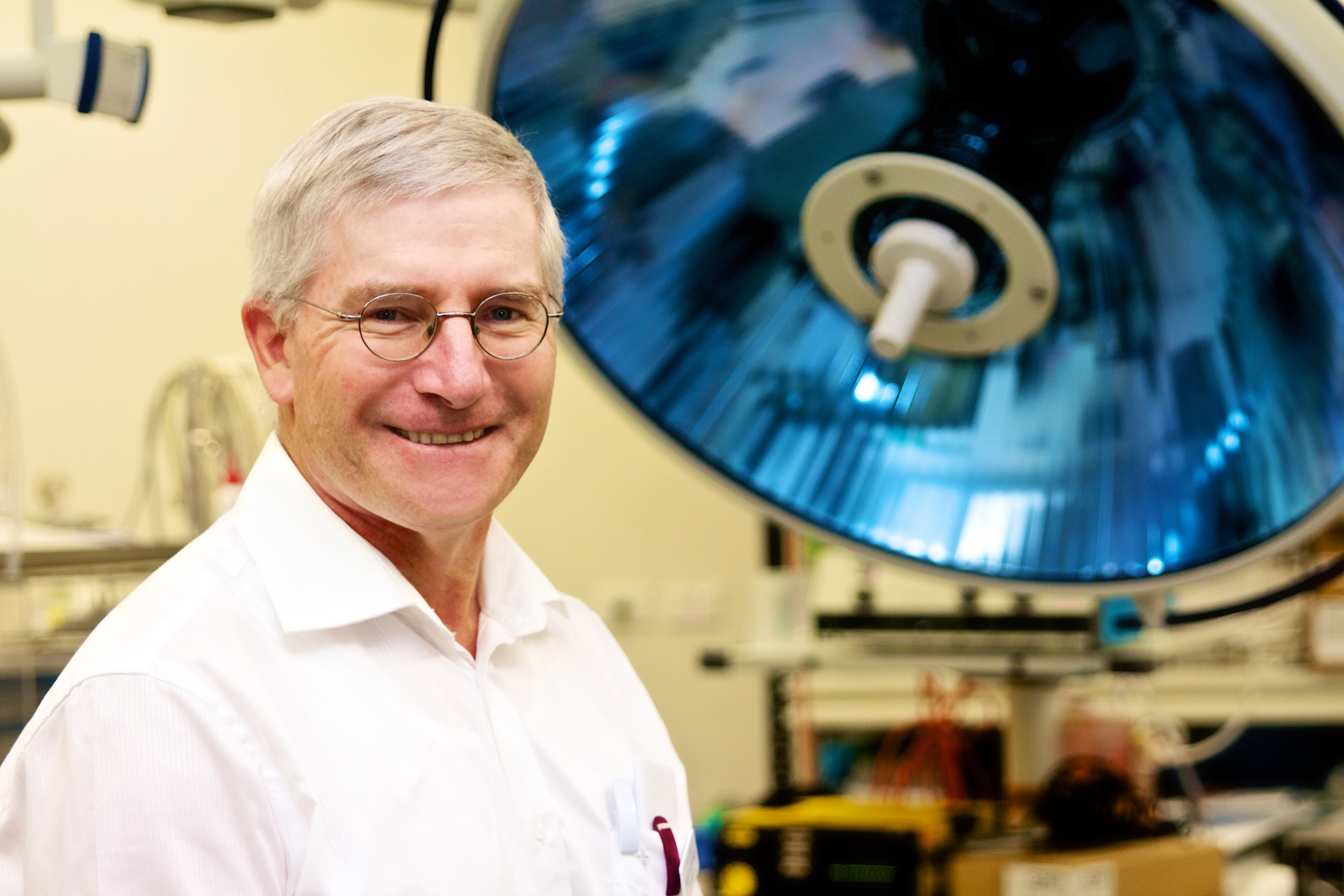the limbic would like to congratulate the cardiologists who have been awarded Queen’s Birthday Honours.
Over the next week we profile the three recipients who have been awarded the prestigious accolade this year for their significant services to medicine as cardiologists.

Professor Peter Macdonald has been awarded an Order of Australia
Professor Peter Simon Macdonald (AM) has been honoured for his significant service to medicine in the field of heart transplantation, cardiovascular research, and to medical education.
“It’s not the reason we do the work but when the honour came up it made the sunshine feel a little warmer,” he told the limbic.
In the early 80’s a young Peter Macdonald began his training in cardiac medicine at Melbourne’s Austin Hospital. There, his interest in heart transplantation began when he was tapped on the shoulder by the then head of cardiac surgery to tell him there was talk that the hospital planned to make a bid to attract the country’s only heart transplant program, which was based in Sydney, to Melbourne.
The doctors there were looking for a bright young cardiologist to look after the medical management of patients before and after their transplant and they’d been taking note of Peter who was just about to finish his PhD in basic science.
“I went to Sydney initially just for a week in 1988 to meet the different people at St Vincent’s Hospital who were working on the heart transplant program at the time – they included people like Victor Chang, Phillip Spratt and Don Esmore – and I think I got bitten by the bug of excitement that goes around with heart transplantation,” Professor Macdonald told the limbic.
After a year back in Melbourne he returned to Sydney and St Vincent’s for 12 months. Settling himself firmly into the burgeoning landscape of heart transplantation and research, he decided to stay and call Sydney home. The rest, he says humbly, is history.
‘The rest’ of course is a litany of vital roles that he has dedicated his career to – Professor of Medicine at the University of New South Wales, senior staff Cardiologist in the Cardiopulmonary Transplant Unit and Medical Director of the Heart Transplant Unit at St Vincent’s Hospital and co-head of the Transplantation Research Laboratory at the Victor Chang Cardiac Research Institute.
Speaking to the limbic from Condobolin in central rural NSW where he’s been running cardiac clinics at the Aboriginal Health Centre over the last decade, Professor Macdonald said cardiology has become more challenging over the years.
“When I first started practicing there was hardly anything that worked to treat heart failure. ACE inhibitors had only just emerged as something that would work, beta-blockers were still regarded as contra indicated so it was a very different field; you would see a lot of relatively young people coming in with heart failure and their prognosis was terrible with medical therapy so transplant was the only option for people with advanced heart failure. But, for those that were able to, a transplant would turn their life around completely they’d be given back a life and a future.”
Professor MacDonald said that over the years he’s witnessed dramatic improvements in medical therapy for heart failure – so much so that he now has patients that he’s been following for over 20 years.
But while people with heart failure are living longer, cardiologists working in that space are faced with new challenges.
“What we’re tending to see now is an older population who are more complex because of their comorbidities and that all adds to a more complex [donor] recipient population.”
Similarly, as the recipient age has risen so has the age of donor hearts making it an ever-increasing challenge to find enough healthy donor hearts to meet the need of transplantation.
That was a challenge that took Professor Macdonald down a new path – finding a way to recover hearts from donors who had died following circulatory death (CDC) so that transplant recipients didn’t have to rely solely on donor hearts from brain dead patients.
The lab-based work Professor Macdonald and his team were doing at the Victor Chang Cardiac Institute was finally translated into clinical practice in 2014 when the world-first transplantation of a CDC donor heart was carried out at St Vincent’s.
Professor MacDonald said the move to recover hearts which were previously considered unsuitable for transplantation meant that thousands more hearts could become available for people with end-stage heart failure.
There are now three centres in the UK that have picked up the program and Professor Macdonald said he expects other units in Europe and North America will start similar programs in the coming year.
“It’s a wonderful feeling to be able to make a contribution to clinical practice. The reward is seeing the people being transplanted using this approach, who would not otherwise have received a donor heart, progress so well subsequent to their transplant, that’s really where the reward is.”
As the father of three and self confessed ‘golf tragic’ returns to his patients in Condobolin, he reflected that even with all the interventions and innovations that have made their way into the profession his relationship with his patients are still the most satisfying.
“It’s difficult here for people if they don’t have regular access to the medical expertise that could help improve their health … I think someone like me coming out here every fews weeks feels like a bit of a band aid solution to me, but I think the flow on from this is that people get a sense that we do care about the community that is out here.
“As I’ve got older I have felt an appreciation that the most important aspect of the doctor patient relationship is the relationship between the doctor and the patient rather than just what I might prescribe or recommend.”